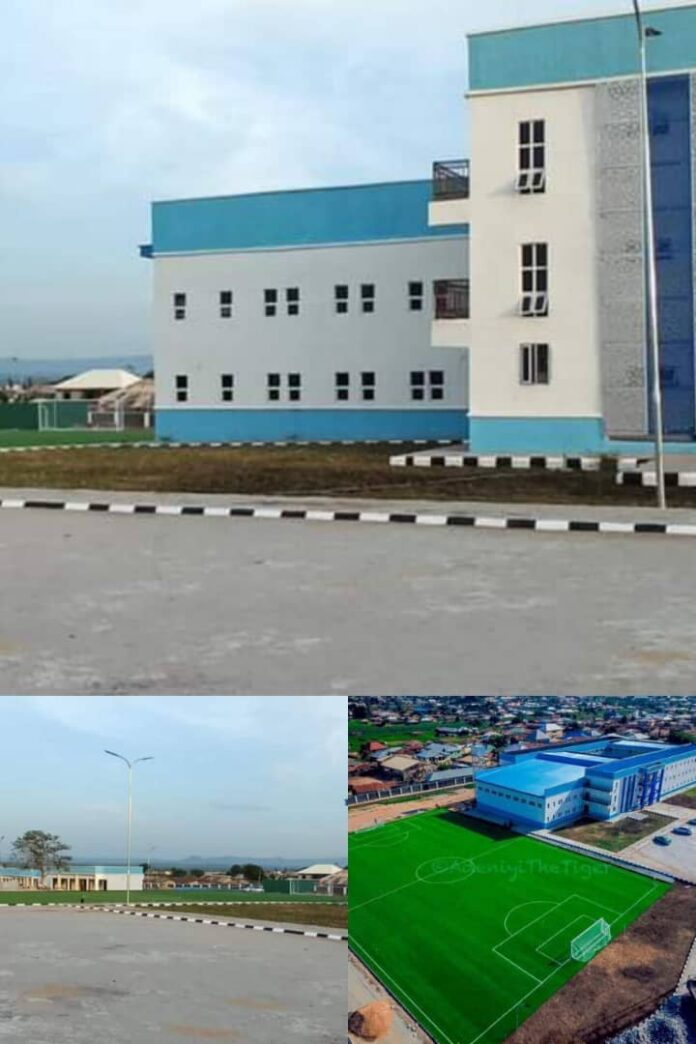
Another Look at Yahaya Bello’s Unsung, Giant Strides in Education
By Hafsat Ibrahim
“True leaders don’t just invest in buildings. They also invest in people. Why? Because success without a successor is failure. So your legacy should not be in buildings, programs, or projects alone; your legacy must be in people.”
– Myles Munroe
Sustainable Development Goal 4 is about quality education and is among the 17 Sustainable Development Goals (SDGs) established by the United Nations in September 2015. SDG 4 talks about “Ensuring inclusive and equitable quality education and promoting lifelong learning opportunities for all.”
Education is a powerful driver of development and one of the strongest instruments for reducing poverty and improving health, gender equality, peace, and stability.
Unfortunately, research has shown that today, education remains an inaccessible right for millions of children around the World. More than 72 million children of primary education age are not in school and 759 million adults are illiterate and do not have the awareness necessary to improve both their living conditions and those of their children.
One in every five of the World’s out-of-school children is in Nigeria. Even though primary education is officially free and compulsory, about 10.5 million of the country’s children aged 5-14 years are not in school. Only 61 percent of 6-11 year-olds regularly attend primary school and only 35.6 percent of children aged 36-59 months receive early childhood education.
However, Kogi state New Direction Administration under the leadership of Governor Yahaya Bello has been breaking new grounds, putting policies and programs in place and building infrastructure to ensure that the state breaks free from the nationwide disaster that education has become in Nigeria.
In an exclusive interview with PRNigeria team recently, the Commissioner for Education, Science and Technology, Honorable Wemi Jones Ojo, revealed that Governor Yahaya Bello does not play politics with education as he sees education as the tool with which he can truly emancipate and liberate the people. He also said that the governor looks at the next generation when it comes to education as he doesn’t see his efforts and investments in education as a way for him to win the next election. He views education as the sustainable path through which he can truly empower his people by preparing them for a vibrant future ahead.
According to the Commissioner, the administration started it’s reforms by drawing a roadmap on short term, medium term and long term goals.
Read Also:
The Governor therefore decided to make the operation systematic and methodical by ensuring that Kogi State has a fully enacted education law which became effective in the year 2020. As it is today, Kogi state is the only state in Northern Nigeria that operates with such a modern law because other Northern States in the country are still operating the colonial education law of 1964.
Currently, Kogi State Government already has an idea of what education system will look like in the state in the year 2030. There is a robust state education sector plan the will guide the state from 2021-2030.
The Commissioner added that
international organisations like UNESCO and UNICEF have repeatedly issued commendation letters and reports on the activities of the state government in the education sector.
“The allocation to education in the Kogi State Budget in 2022 is 30 percent and UNESCO recommended 26 percent which implies that Kogi State is 6 percent above the UNESCO benchmark. The more reason there is massive development in the state education sector.
“The State is also delving into the system of STEM – Science Technology Engineering and Mathematics. For example, the Governor is currently constructing am Ultra-modern GYB Model Science Secondary School Adankolo, in Lokoja here, Ebira Community Secondary School Ogaminana in Adavi Local Government and Community Secondary School Ajiolo Ojaji in Dekina Local Government Area. The Governor is very balanced in the Construction, Remodelling and Renovation of schools. The projects are happening across the state and in every senatorial district like Kogi West, Kogi Central and Kogi East,” he said.
Kogi also has the least number out-of-school children among the 19 Northern States, according to the Nigeriabl Bureau of Statistics (NBS). This is due to the particular attention the New Direction Administration has placed on issues of education in the State.
At a time university undergraduates across the country are at home, the two universities in Kogi state (Prince Abubakar Audu University, Anyigba, and Confluence University of Science and Technology, Osara) are currently functioning effectively like private schools due to the fact that Governor Bello has made sure the lecturers are not only well taken care of but they are also no longer members of the Academic Staff Union of Universities (ASUU).
Within the space of one year (2020-2021) there has been positive change in WAEC pass rate and the state moved from number 28 to 14 on the list of Nigerian states.
The financial autonomy granted to the state Varsity in Anyigba, the Commissioner said, was meant to improve the Institution in terms of revenue generation, administrative freedom and academic performance.
In terms of security on campus, he added that the education law that was enacted in 2020 has reduced the rate of cultism in higher institutions in the state to the barest minimum.
There is no doubting the fact that education has received the greatest attention from Governor Bello. Both elementary school pupils and university undergraduates in Kogi state feel as if they are not Nigerians. That is the kind of safe haven Governor Bello has created in the state.
No wonder the Governor is asking Nigerians to trust him with the opportunity to fix the chaotic education situation in the nation.















